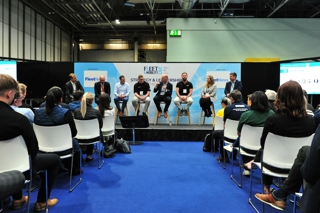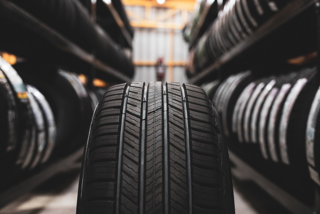By Andrew Ertl, fleet operations manager at Autoglass
Fleet managers today face an increasingly difficult reality: keeping vehicles safe and operational against a backdrop of worsening road conditions.
The latest ALARM (Annual Local Authority Road Maintenance) report paints a stark picture: a record £17 billion repair backlog and roads being resurfaced, on average, only once every 93 years.
While the headlines often focus on potholes and structural damage, the impact on fleet vehicles, specifically windscreens, is a growing and often overlooked issue.
Windscreens are a key structural and safety component of modern vehicles and fleet managers should not dismiss windscreen chips as minor issues.
This isn't merely about road aesthetics; it directly impacts the bottom line and, crucially, driver safety.
The state of our roads is directly causing windscreen damage to vehicles up and down the country. Every chip is a potential hazard waiting to escalate into a costly replacement and vehicle downtime.
There are several proactive steps that fleet managers can take to save money and keep fleets moving.
Introducing regular routine windscreen inspections can ensure drivers identify chips early. Windscreen chips are relatively quick and inexpensive to repair.
However, if left untreated, they can quickly develop into cracks, necessitating a full windscreen replacement. This is a longer process, meaning the vehicle will have to stay off the road for longer, impacting efficiency.
Regular checks can catch chips early in the process and help save fleet managers money and time.
Opting for a windscreen chip repair over a replacement also minimises the environmental impact by reducing waste and conserving the energy used in manufacturing new glass.
It is also important to embrace data and digital tools to track patterns of damage across your fleet. This insight can help identify high-risk routes or vehicles and enable smarter planning around servicing and maintenance schedules.
Once damage is identified, it is also essential to not overlook ADAS recalibration if a windscreen replacement is needed.
It is important to work with a reliable and expert partner who has the capabilities to recalibrate ADAS cameras after a windscreen replacement to ensure the technology is relaying the correct information to the vehicle and driver.
Failure to do so can jeopardise compliance and, more importantly, pose a significant safety risk to drivers.
It is important to get vehicles back on the road as quickly as possible and so working with a partner who can provide a full ADAS recalibration within a replacement appointment, can save time and ensure roadworthiness
While fleet managers can't control the condition of UK roads, they can minimise the impact on their vehicles.
Proactive windscreen care is not just about cost avoidance; it’s about safeguarding your workforce, reducing operational disruption, and ensuring every vehicle on the road meets the highest safety standards.
With the right processes in place, it’s possible to turn a growing national issue into a manageable operational one. It’s about taking control in a situation where many factors are beyond your influence.




















Login to comment
Comments
No comments have been made yet.